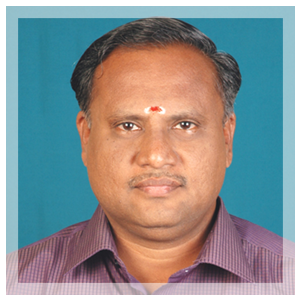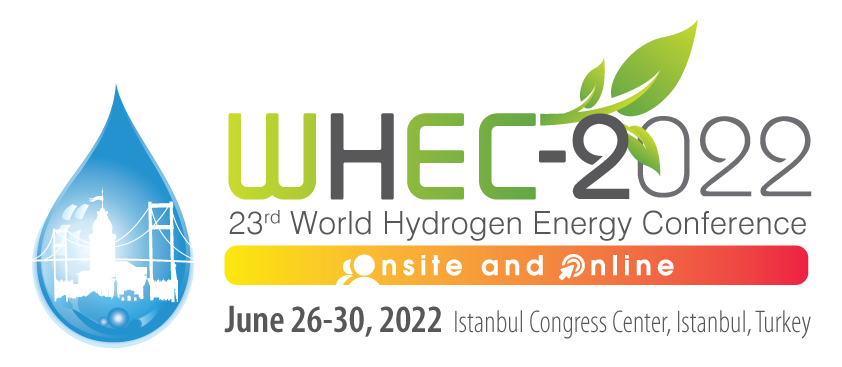| Name | Professor.S.Vasudevan |
 |
| Affiliation | CSIR-Central Electrochemical Research Institute |
|
| Presentation Title | Hydrogen Production by Electrolysis to Clean Reality |
|
| Abstract | Alternative energy sources like solar, wind, thermal, ocean, geothermal, thermonuclear, hydrogen etc., are being considered as possible sources of energy to meet the growing demand. However, none of these energy sources except hydrogen has all the desirable qualities to replace petroleum and natural gas. For example, some are only intermittently available; others are available away from the consumption centers and cannot be used as fuel for transportation. Therefore, out of the above alternative energy sources, hydrogen is considered the best option, which could form the link between the new energy sources and the user. Hydrogen is the clean fuel and when used as a fuel, produces only water. In the hydrogen energy system, it is envisaged that hydrogen will be produced from non-fossil energy sources, and will be used in every applications where fossil fuels are used today. Over the last decade there have been increasing research efforts to investigate the various aspects of the hydrogen energy systems like production, storage and transport and its applications. Generation of hydrogen via electrolysis is a well-known and established technology. There are two main types of electrolyser [Alkaline and Proton Exchange Membrane (PEM)] and both are well proven and long-lived. Electrolysis has been traditionally based on an alkaline technology, but Proton Exchange Membrane (PEM) electrolysers are now coming to the forefront. However, due to the high cost of both electricity and material, only a small proportion (4 -5%) of the worldwide hydrogen production comes from electrolysis. Yet electrolyser costs are expected to drop within the few years as a consequence of standardization, mass-production, and a greater competitiveness. The demand for clean-produced hydrogen and its storage potential spell enormous possibilities for renewable electrolysis in the future. Even non-renewable electrolysis is bound to play an important role in the short-term as a source of moderate amounts of hydrogen for small fuelling stations and domestic applications. In future low-carbon economics, electrolyser technology could provide a central solution to meeting both the power management needs of the electricity sector and the needs of the transport and industrial sectors for low/zero carbon fuels. Electrolytic hydrogen could thereby displace large proportions of non-electricity fuel consumption. Hence, the new market potential for electrolyser dwarfs the existing market potential and on a global scale it is truly vast. In this talk some of the important and recent developments in the electrochemical alternatives with newer materials for hydrogen generation are discussed. The talk also covers hydrogen based technologies developed at CSIR-CECRI. |
|
| Biographical Sketch |
Prof. Vasudevan Subramanian is a Senior Principal Scientist at the CSIR-Central Electrochemical Research Institute and Professor at the Academy of Scientific and Innovative Research, New Delhi. Through his creative, interdisciplinary and cutting edge research, Vasudevan has made extensive fundamental and applied contributions to the field of water electrolysis, water treatment, inorganic chemicals and storage batteries. His research has focused on novel electrocatalysts, electrolyser anode/cathode, electrochemical water treatment systems, anode/cathode for magnesium reserve batteries and synthesis of inorganic oxidants. He has also been actively engaged in innovative engineering of PEM based electrolyser, magnesium organic reserve batteries, electrocoagulation & electro-Fenton water treatment systems and electrolysis system for production of inorganic oxidants/chemicals. His assiduous involvement in research on electrochemistry earned him D.Sc (h.c) and ranked in TOP 2% of Scientists Worldwide (Stanford University). Dr.Vasudeban has authored over 120 scientific papers, has two dozen technical patents to his credit, transferred many technologies to industries and has over three decades of research/teaching experience in India’s premier R&D institution. Prof. Vasudevan is Fellow of Royal Society of Chemistry, Australian Institute of High Energetic Materials, Academy of Sciences Chennai and many other academies. He is a visiting faculty/professor in Indian/International Universities. Prof. Vasudevan is on the editorial boards and associate editor of many prestigious journals including Scientific Reports (Nature) and received numerous professional awards such as MRSI Medal. |
|
